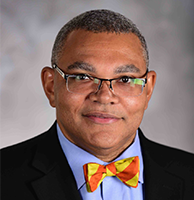
websitehttps://www.ae.utexas.edu/people/faculty/faculty-directory/clarke
emailjohnpaul@utexas.edu
phone (512) 471-4371
office ASE 3.222
Ernest Cockrell Jr. Memorial Chair in Engineering
Professor Aerospace Engineering & Engineering Mechanics
John-Paul Clarke is a professor of Aerospace Engineering and Engineering Mechanics at The University of Texas at Austin, where he holds the Ernest Cockrell Jr. Memorial Chair in Engineering. Previously, he was a faculty member at the Georgia Tech and MIT; Vice President of Strategic Technologies at United (now Raytheon) Technologies; and a researcher at Boeing and NASA JPL. He has also co-founded multiple companies, most recently Universal Hydrogen – a company dedicated to the development of a comprehensive carbon-free solution for aviation.
He has served and continues to serve on several national and international technical committees, and corporate boards. For example, he is a member of the NASA Advisory Council and Chair of the NASA Aeronautics Committee, and in addition to being the Chair of the Board of Directors of Cayman Airways Limited, is a member of the Boards of Directors of Indigo Insurance Ltd., the PROVEN Group, and Universal Hydrogen Co.– a company he co-founded that is dedicated to the decarbonization of aviation via a novel low capital expenditure hydrogen supply and distribution system.
Dr. Clarke received the S.B., S.M., and Sc.D. degrees from MIT in 1991, 1992, and 1997, respectively. He is a Fellow of the AIAA and the RAeS, and is a member of AGIFORS, INFORMS, and Sigma Xi. His many prior honors include the 1999 AIAA/AAAE/ACC Jay Hollingsworth Speas Airport Award, the 2003 FAA Excellence in Aviation Award, the 2006 National Academy of Engineering Gilbreth Lectureship, the 2012 AIAA/SAE William Littlewood Lectureship, and the 2015 SAE Environmental Excellence in Transportation Award.
Dr. Clarke is an expert in the development and use of stochastic models and optimization algorithms to improve the efficiency and robustness of complex systems, with a particular focus on aviation. For example, his work has led to the development of the world’s first fully autopilot-coupled continuous descent arrival procedure to be used in daily operations; airline schedules that are “robust” to poor weather and/or aircraft failures; and a state-of-the art algorithm to maximize the likelihood of success for a portfolio of research and development projects (or financial assets) with uncertain future performance and schedule.